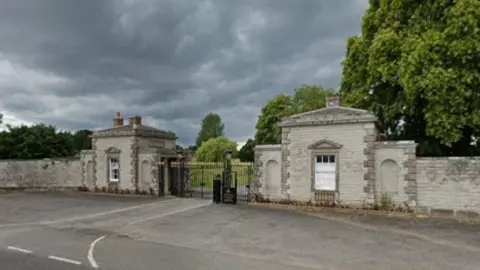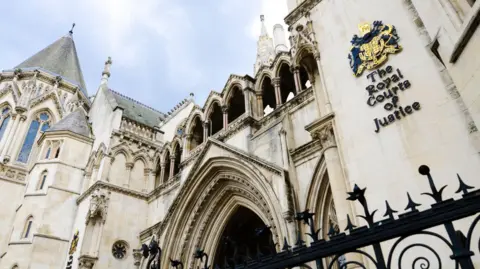Earl loses £85m estate legal battle with family
 Google
GoogleThe eldest son of an aristocratic family has lost a legal battle in which he was claiming he should have been given its £85m ancestral estate.
The Earl of Yarmouth, William Seymour, took the High Court action against his parents, three siblings and two trust corporations over the running of parts of the Ragley estate.
The legal claim related to three settlements which form part of the estate including the 400-year-old family seat, Ragley Hall in Warwickshire.
In his ruling on Monday, Judge James Brightwell said he accepted the "damaged and fractured" relationship between Lord Yarmouth and his parents and siblings was "poor".
Lord Yarmouth had asked for the two trust corporations to be removed as trustees and replaced with an independent one.
Lord and Lady Hertford, as well as Lord Yarmouth's siblings - Lady Gabriella Seymour, Lord Edward Seymour and Lady Antonia Seymour - all opposed the legal claim.
The three settlements which form part of the estate, including farmland, residential properties and woodland, are valued at about £45m.
 Getty Images/gregobagel
Getty Images/gregobagelIn evidence for the hearing in London, Lord Yarmouth, 31, told the court his parents led him to believe that he would take over the running of the estate aged 30, and that several land appointments had been made to him when he was younger.
He claimed his parents were "far from delighted" with his plans to marry Lady Yarmouth, Kelsey Wells.
In his evidence, Lord Hertford said he did plan for his son to take over the running of the estate but now did not consider him "appropriate".
He added this decision "coincides with his marriage, but Kelsey is not the main reason", claiming that his son's behaviour "started to change" before the wedding.
"I am disappointed at William's lack of achievement," he added.
"I am proud of the fact that he went to college but made a mistake at university and didn't graduate.
"William has not followed a profession or obtained qualifications or experience to take over the running of Ragley Hall."
Lord Yarmouth asked the judge to order the removal of two trust corporations, Ragley Trust Company Ltd and Seymour Trust Company Ltd, as co-trustees of the three settlements.
But the judge said that while it was "obvious" that Lord and Lady Hertford had shown "deep antagonism" to Lady Yarmouth and "created practical difficulties in the wedding arrangements", Lord Yarmouth was "keen to create a dispute about the way Ragley was run at a root and branch level".
He also said he did not consider the claims to be "well-founded", and continued that he accepted evidence that the trustees "administer the trusts themselves, making decisions independently of Lord and Lady Hertford".
"The fact that the claimant has a very earnest belief that the trustees have failed in their duties or should have acted differently, in an unspecified way, is no sufficient basis for a finding that they have so failed in their duties," the judge added.
Follow BBC Coventry & Warwickshire on BBC Sounds, Facebook, X and Instagram.
